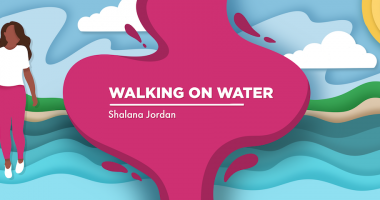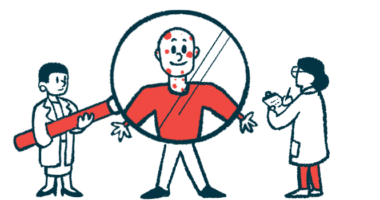You’re Not Letting Others Down; You’re Letting Yourself Down
This holiday season, set boundaries — and don't feel you're disappointing anyone

It’s my favorite time of year: holiday season! That’s when we have Halloween, Thanksgiving, Christmas, New Year’s, and December birthdays for me and my kids. Having two autoimmune diseases and subsequent medical issues, however, makes it hard for me to participate in all holiday events. It’s easy to feel I’m letting everyone down.
A mild case of COVID-19 triggered severe medical issues in 2020, and I developed a rare disease called atypical hemolytic uremic syndrome (aHUS). I was in intensive care for almost two months and lost over 15% of my muscle mass. Multiple organs failed, and I needed five months of dialysis, 18 blood transfusions, plasmapheresis (the removal, treatment, and return or exchange of blood plasma or its components), and now lifetime chemotherapy.
Today, over two years after that hospital stay, I still haven’t regained my strength or stamina. Every time I take two steps forward in recovery, chemo or a new symptom knocks me four steps back. Some days it’s too hard to get out of bed.
I call my aHUS a silent disease because on the outside I look fine. Someone with a silent disease can have mobility, go shopping, get in and out of their car, go to a restaurant, and look healthy.
But you can’t see my port-a-cath scar. Or my entire left side swelling constantly from May-Thurner syndrome. You can’t see my left arm blood pressure running around 280/190 while my right arm blood pressure runs around 80/50. You can’t see my kidneys function between 15% and 22%. Or that my gorgeous hair is a wig. (Seriously, I get so many compliments.)
A spiraling process
Some family members are planning a family vacation, which sounds like so much fun. But I can’t help instantly feeling anxiety and dread that I’ll disappoint them all. For starters, trips have to be planned around my chemo schedule. And I can’t do extended car rides, long flights, or running around for three days or more. My body just can’t handle it.
If I’m active one day for an event or project, it puts me in bed for the next one to two days. If I stay on my feet to cook dinner, sometimes I become too sick or in too much pain to eat it.
I’ve lost count of how many events or outings I’ve skipped, how many field trips I didn’t chaperone because I knew I wouldn’t be able to keep up with the group, and how many fun adventures I missed because the germ risk would be too high. (My chemo keeps me immunosuppressed.)
I hate feeling like a disappointment, which makes me feel guilty. Unfortunately, people expect a lot from me, especially close friends and family who knew me before I became sick. They unknowingly expect me to function like a “normal” person, as I once did. Maybe they figure, “She’s not on dialysis, she’s not in the hospital, so she’s fine.” And I suppose it doesn’t help that I downplay my daily symptoms because I don’t like sounding negative.
I feel fulfilled when I help others, so letting people down is a huge hit to my mental health. When I don’t go to an event, I worry that others think I’ve blown them off. But it’s imperative that I maintain my health so my children have their mother.
How I handle my limitations
The following lessons are my takeaways from these truths:
- I need to set boundaries.
- I’m allowed to say “no.”
- My health is important, too.
There’s absolutely nothing wrong with setting boundaries. It took a while for me to realize that my body now has specific and finite limits. I can tell when I’m approaching a limit and have learned to “tap out” before I melt down.
Saying “no” ahead of time saves me a lot of headache as well. It’s worse to let someone down by telling them “yes, I can” — and then realize I can’t. This lesson has been the hardest for me to learn. I used to say yes to helping with random projects or events that I didn’t need to volunteer for, instantly feeling regret the minute I said I could.
Ultimately your health must be your No. 1 priority. You can’t help anyone or care for your family if you’re in the hospital. You can’t be your authentic self with constant stress and pressure. I thought I was putting my kids first by ignoring my illness and making it to work no matter what — but I really just risked them losing their mother.
Set your boundaries and be patient. We have to remember that a lot of the day-to-day struggles for someone with a rare disease are not common knowledge for a healthy person. I never understood the struggles of a chronic disease until I lived it. Likewise, your friends and family won’t know unless you tell them.
There’s only one you in their lives, and you’re irreplaceable.
Note: aHUS News is strictly a news and information website about the disease. It does not provide medical advice, diagnosis, or treatment. This content is not intended to be a substitute for professional medical advice, diagnosis, or treatment. Always seek the advice of your physician or other qualified health provider with any questions you may have regarding a medical condition. Never disregard professional medical advice or delay in seeking it because of something you have read on this website. The opinions expressed in this column are not those of aHUS News or its parent company, BioNews, and are intended to spark discussion about issues pertaining to aHUS.







Comments